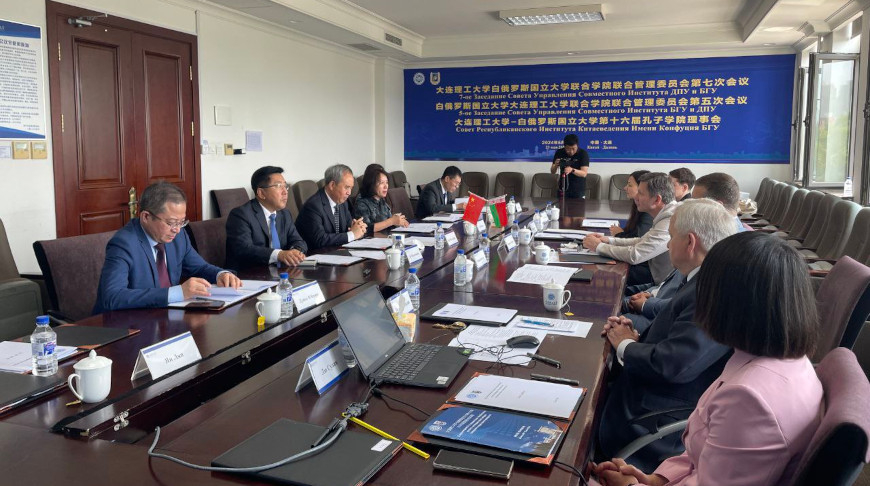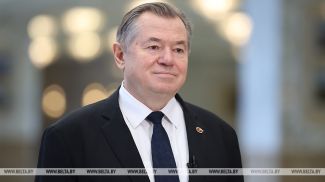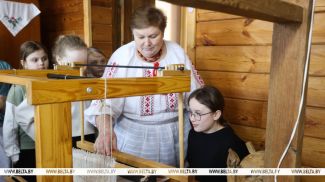
Photo courtesy of the press service of BSU
MINSK, 25 May (BelTA) – During their visit to China, a delegation of Belarusian State University (BSU) put forward cooperation proposals in the field of biotechnology, language training and regional studies, BelTA learned from the press service of the university.
BSU Rector Andrei Korol voiced these initiatives at the meeting of the Belarus-China Association of Universities in the city of Dalian.
“The association’s meeting was attended by rectors of about 60 universities from Belarus and China. The association was set up in November 2023 to facilitate academic exchanges and promote cooperation in higher education and scientific research between Chinese and Belarusian universities.
According to Andrei Korol, four joint projects with Chinese universities and research centers are expected to be implemented. These projects deal with the structural biology of acetylcholine receptors and the molecular mechanism of blood cancer in children, the creation of microfertilizers based on quantum dots, the study of bacterial and phytoplankton in urban reservoirs, as well as agricultural biotechnology. “By launching joint postgraduate and master’s programs, we might expand cooperation with Peking University, the Chinese Academy of Sciences, and the University of Foshan,” the university’s press service informed.
As for the interaction between BSU and Chinese universities in language training and regional studies, participants of the forum suggested introducing innovative technologies to teach Chinese and Russian as foreign languages, establish an exchange of undergraduates, and put together joint teams of authors to write and publish Chinese language textbooks and learning and teaching aids.
The forum served as a platform for inter-university meetings. The BSU rector signed a memorandum of understanding with the Dalian University of Foreign Languages. Agreements on student exchanges were also reached with Guizhou Normal University.
BSU is one of the most popular universities among Chinese students. The university trains more than 5,000 foreign students, of them 3,400 are Chinese nationals.













